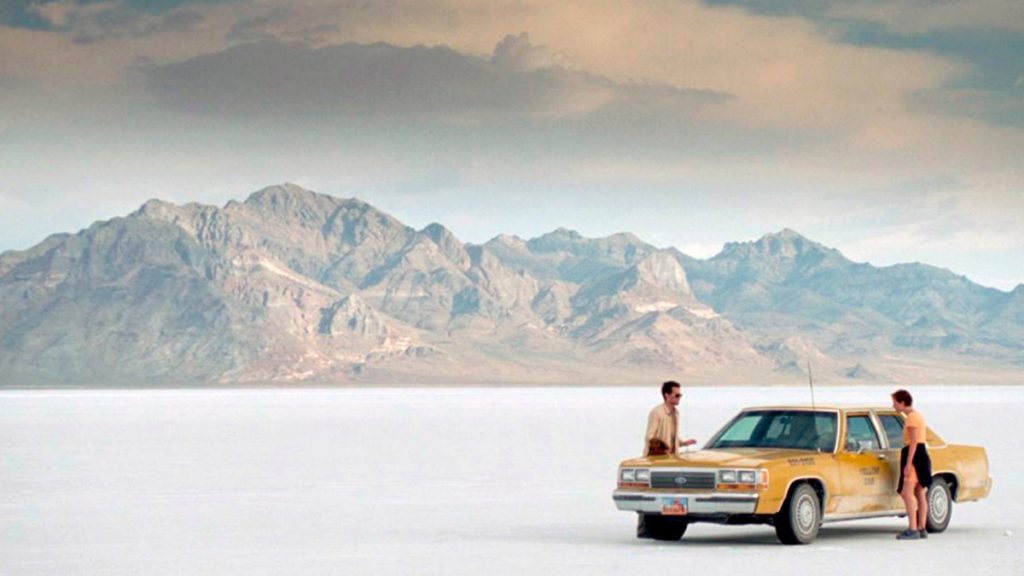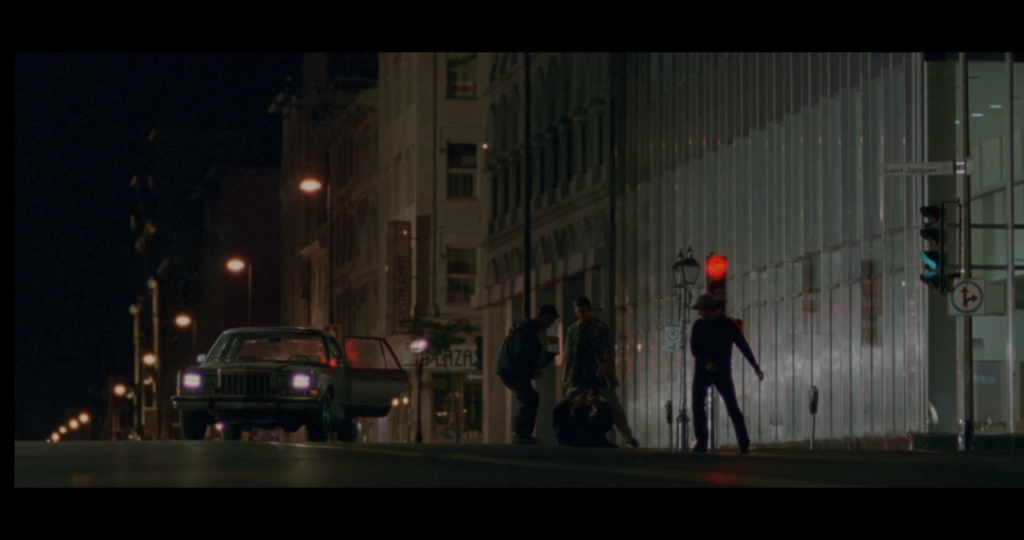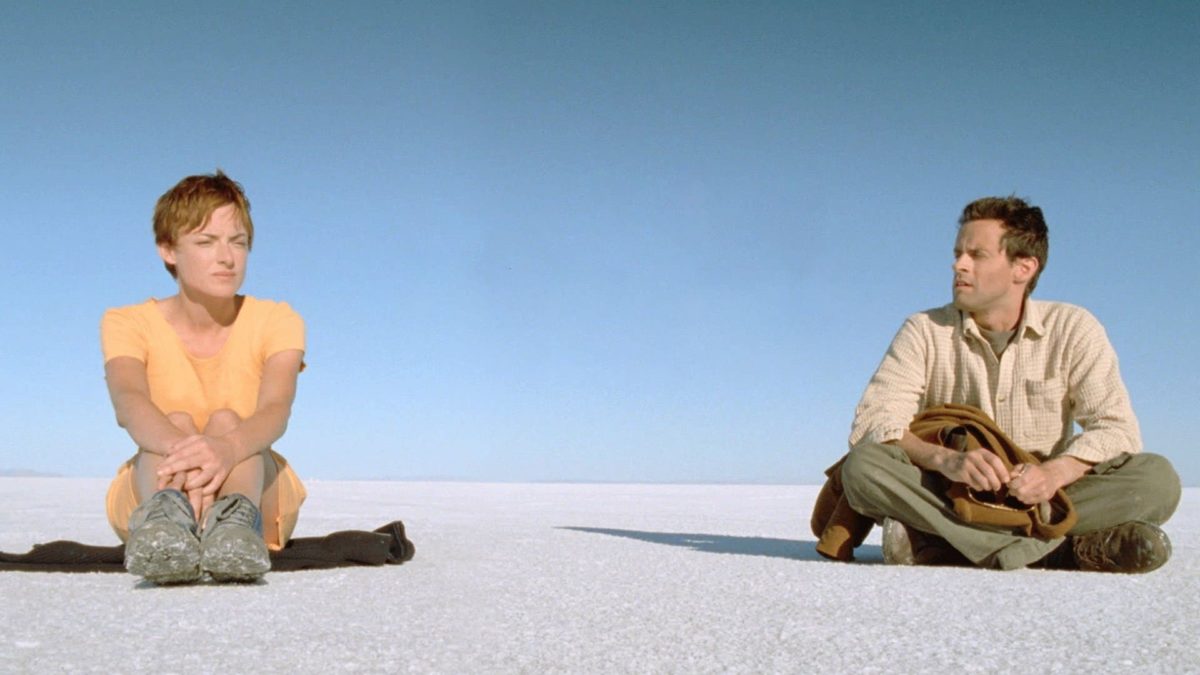Wake me up when September begins
Given that the only reason pretty much anyone would seek out this film in 2024 is because it is the debut film by a successful blockbuster director, I will put this up front: I have never watched a Denis Villeneuve film before this. I guess that’s technically not quite true: I watched 40 minutes of Dune on HBO Max (when it was known as such) with my wife before she fell asleep and I turned it off. We never got around to finishing it. But, long story short, I am coming in about as fresh on Villeneuve as a movie lover can.
Where better to start than the beginning? Villeneuve opened his career taking part in a Canadian anthology, Cosmos. He then wrote and directed a string of four Canadian films in the French language before shifting his career to Hollywood for the big-budget films most of us know him for. Those first four films are the only features he has written until his adaptation credits on Dune 1 & 2. Critic Amy J. Ransom calls this early stretch his “Quebecois auteur era,” and the set do seem to have a reputation as more personal than his later blockbuster work.

The first of these, his debut, is 1998 feature film August 32nd on Earth. (The French title is the more elegant Un 32 août.) Villeneuve helms this uneven romantic dramedy, elevating a ragged script with a distinctive directorial style. The film follows Simone (Pascale Bussieres) and Philippe (Alexis Martin), two friends that have a long history of friendship fraught with unresolved sexual tension which Villeneuve alludes to but never fully captures quite to the level the story requires.
There’s a little bit of structure to the film’s story, but not much: Mostly, we hang out with the pair for an hour and a half, tracking their relationship and using it as a proxy for the characters navigating an increasingly fast-paced and complicated adult world. It’s calls to mind Gen X arrested development films like Singles, Reality Bites, Kicking and Screaming, and Before Sunrise, though I suspect Villeneuve is going more for Breathless by way of Fellini.
The story begins with Simone miraculously surviving a grisly car accident without a scratch, which prompts her to search for meaning in her life. She asks close friend Philippe to impregnate her with a child, despite his happy relationship with a different woman. This request sets in motion a journey that takes them from their home in Montreal to the vast, otherworldly landscape of the Bonneville Salt Flats in Utah.
Villeneuve’s direction is the standout feature of the film, as he infuses the story with weirdly grand imagery evoking death and the afterlife. He includes plenty of allusions to birth, as well, suggesting Villeneuve sees something cyclic in his characters’ romance. Where a comparable indie romance might be set in a noisy city or dreary suburb, August 32nd on Earth settings are a space age River Styx: The motif of transportation from one place to another (taxi, airport, car, etc.) is prominent, and Villeneuve alternates between small compartments and vast emptiness.

The most striking and memorable visual feature of the film is the characters’ trek through the Salt Flats, which takes close to half the runtime. The endless expanse of white emptiness mirrors the romantic tension between Simone and Philippe that drags on unresolved. It’s a purgatory both in the setting and between the characters.
Villeneuve reinforces the idea that the characters are undergoing a spiritual transformation as well as romantic with both imagery and elliptical editing, (courtesy Sophie Leblond) which pushes certain moments into surreal temporal and physical ambiguity. This is especially prominent in the film’s final 15 minutes which have a strange texture to them thanks to this clipped editing tempo.
While Villeneuve’s direction and the editing bring unique and ambitious flavor to the film, the story and characters themselves remain underdeveloped: For starters, the dynamics between Simone and Philippe are not sketched sharply or richly enough. Unlike the best of the Gen X genre (see: Before Sunrise), neither character feels like a fully formed human, which diminishes the connection between the pair. Villeneuve’s focus on constructing a haunting beauty for the scenario overshadows his consideration of the scenario itself.

The lead performances by Pascale Bussieres and Alexis Martin are good, though, with their on-screen chemistry adding at least a little bit of depth. They bring a certain je ne sais quoi to their roles, a sizzle I associate with French Canadians. Martin in particular earned some accolades at the Cannes premier. I do wish they had a little bit more of characters in the screenplay to chew into with their performances, because they’re right on the cusp of making something really memorable with it.
Between the performances and the unique, arch flavor to the film, August 32nd on Earth serves as an intriguing introduction to Denis Villeneuve’s directorial style. It holds together just well enough, and suggests 31-year-old Villeneuve was headed places. It would take a few years, but sure enough…
- Review Series: Denis Villeneuve
Is It Good?
Good (5/8)
Awards, Honors, & Rankings
Dan is the founder and head critic of The Goods. Follow Dan on Letterboxd. Join the Discord for updates and discussion.


2 replies on “August 32nd on Earth (1998)”
This is a really unique angle to approach Villeneuve’s body of work from in 2024, and I’m FASCINATED to see where you land when you get to his big-budget stuff.
Thanks Andrew. I am curious as well. I’ve now watched all 4 of his early French movies (reviews incoming), and they get dark. I’m very curious to see how this worldview pivots to something bigger budget and presumably more populist.